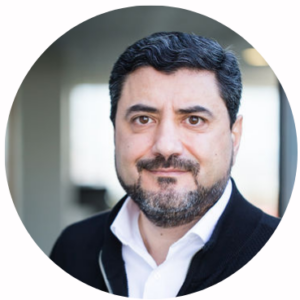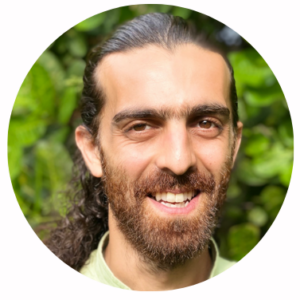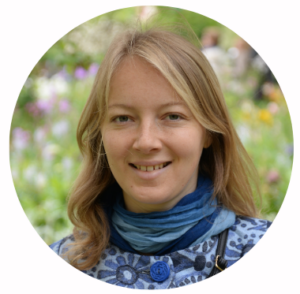The PAUSE programme celebrates its 8th anniversary
Since 2017, 680 scientists and artists forced into exile have been supported by PAUSE
Since 2017, the PAUSE programme has enabled 587 researchers and 93 artists from over forty countries to integrate French research and cultural networks.
There are many reasons why these men and women have gone into exile, reflecting the diversity of threats to scientific and artistic freedom around the world. War has forced 43% of them into exile. The countries of origin of those supported reflect the major geopolitical crises that have shaken the world in recent years: Syria, Yemen, Iraq, Ethiopia, Afghanistan, Iran, Ukraine, Russia, Sudan and, more recently, Palestine.
A third of the laureates were victims of state violence, including arbitrary arrest and imprisonment, often for political reasons. To give a few examples, several hundred Russian opponents were forced into exile after Russia invaded Ukraine. This was also the case for Belarusians, after the great protest movement of 2020. In Turkey too, in 2016, hundreds of academics who signed the ‘Academics For Peace’ petition were arrested, prosecuted and dismissed for their stance in favour of a peaceful resolution to the Kurdish conflict. The loss of their position within their home institution is the third main threat faced by the programme's laureates.
Finally, others flee the violence perpetrated by non-state armed groups. In Iraq, for example, the takeover of Mosul by the Islamic State forced many civilians, including intellectuals, to flee. In Brazil, under the Bolsonaro era, death threats made by far-right groups against artists and academics have created a widespread climate of insecurity.
Faced with these threats, the PAUSE programme has, for the last 8 years, offered these researchers and artists a refuge and a new perspective, enabling them to continue their work in safety.
Mohamad Alaa Eddin Alali, Professor at the Faculty of Electrical Engineering at Aleppo University in Syria, was hosted at the École Nationale Supérieure de l'Électronique et de ses Applications (ENSEA) between 2017 and 2020. At the end of his contract, he obtained the qualification of lecturer at the same institution, then a diploma of Habilitation to direct research (HDR).
Opening to artists in 2021
The PAUSE programme aims to defend critical thinking, freedom of thought and freedom of expression and to offer a safe haven to those who are deprived of it. The first few years of the programme focused on supporting academics. However, the idea of offering an equivalent scheme to artists was born at the very beginning of PAUSE. In 2021, thanks to close cooperation with the Association nationale des écoles supérieures d'art (ANdEA) and the Atelier des artistes en exil, this idea became a reality. Since then, 93 artists have benefited from the programme's support and the network of host structures continues to develop and diversify, offering artists in exile the opportunity to create, transmit and exhibit.
In this context, Omid Hashemi's testimony is worth mentioning. Born in a village in northern Iran, Omid is a multidisciplinary artist whose career has been marked by constant geographical mobility. From Iran to France via Turkey, his life experiences have shaped his art, which is nourished by a rich cultural diversity. With a doctorate in Aesthetics, Science and Technology of the Arts from the University of Paris 8, he has developed a singular artistic practice, at the crossroads of performance, installation and video art. The repression that followed the Women, Life, Freedom movement in Iran forced him into exile in 2022, leading him to pursue his creative work in a new context.
8 years of adapting to crises: key milestones
In 8 years, the programme has achieved a great deal. The programme team, the members of its governance and its scientific and artistic committee, its partners and funders and, of course, the more than 140 higher education and research establishments and cultural structures throughout France - hundreds of people - have formed a chain of solidarity to enable threatened scientists and artists to continue their creative or research work in France.
Over the last few years, PAUSE has demonstrated its ability to react quickly to crises in a number of ways. In 2020, when the Covid-19 pandemic paralysed the world, the programme quickly put in place exceptional measures to support the laureates. Extended funding enabled them to continue their research work, despite the health constraints.
Adapting to health crises, but also, and above all, to geopolitical crises:
In August 2021, when the Taliban took Kabul, thousands of Afghan men and women were trying to flee the country. The programme received hundreds of appeals for help from students, academics and artists. In September, the public authorities announced exceptional additional funding for the programme. An emergency procedure, developed in close collaboration with the French scientific and artistic communities and in constant cooperation with the Ministries of Europe and Foreign Affairs and the Interior, enabled 25 Afghan scientists and artists and their families to reach France in December, despite the constraints imposed by the closure of the country.
In February 2022, when Russia invaded Ukraine, the programme set up two emergency funds, one for scientists and the other for artists and cultural professionals, in a matter of days, thanks once again to substantial financial support from the public authorities. The aim of these funds is to provide finance to enable them and their families to be sheltered for 3 months. 176 scientists and artists have benefited from these emergency funds in just a few months. At the same time, PAUSE is working closely with the French National Research Agency (ANR) to create a special scheme dedicated to Ukraine, and is funding more than a hundred scientists and artists under the programme's traditional calls for proposals.
In 2022 alone, a total of almost 380 people, i.e. almost the same number as in the first 4 years (100 people per year), the vast majority of whom are of Ukrainian or Russian origin, will be supported by PAUSE, which is undergoing a change of scale.
Since the end of 2023, the programme has introduced a fast-track procedure for Palestinian scientists and artists, to enable rapid support that is not dependent on the timetable for the 3 annual calls for applications. However, of the 50 or so winners supported, only half have been able to travel to France with their families. The others are still trapped in Gaza, unable to leave the territory which is under blockade and under constant bombardment.
These figures testify to the scale of the mobilisation and impact of the PAUSE programme and the entire network of players who are mobilising, committing themselves and adapting to support their scientific and artistic colleagues.
8 years of adapting to crises: key milestones
The results of the PAUSE programme are encouraging, but the challenges ahead are numerous. In the face of intensifying crises and growing demand from researchers and artists in exile, the question of funding for the programme is becoming increasingly acute. While ad hoc solutions have been found in response to major crises, thanks to funding from ministries, foundations and patrons, it is essential to secure long-term, diversified sources of funding in order to meet the ever-increasing needs; challenges that are also faced by many host establishments, whose financial situation is precarious.
Professional integration at the end of the programme is also a major issue. Although PAUSE offers funding for one year, renewable once (2 in the case of doctoral students), the question of socio-professional integration arises when opportunities in academic and artistic circles are limited. Two-thirds of laureates find a professional opportunity very quickly after PAUSE support, but many have to retrain. The programme helps them to do this by providing additional funding for training and setting up partnerships with experts in the field of professional integration, in particular the Bernard Gregory Association.
However, while the challenges are many, encouraging prospects are emerging, particularly at European level. Alongside its national activities, PAUSE is part of a wider European and international dynamic. A member of the InSPIREurope consortium since 2019, the programme works closely with its European counterparts to defend the cause of scientists in exile. The result of our collective lobbying efforts with European bodies, the pilot programme ‘Supporting at-risk researchers with fellowships in Europe’ (SAFE), launched in September 2024, will provide funding for around 60 scientists at risk in research institutions in EU member states. At the end of this programme, in which PAUSE is a partner, a more permanent system of support for researchers at risk on a European scale could be set up.
In eight years, PAUSE has demonstrated its effectiveness and, unfortunately, its indispensability. However, to meet the challenges of tomorrow, the programme needs stronger support. By securing and diversifying public and private funding, developing new partnerships and stepping up support for the winners, the programme will be able to continue to offer refuge to researchers and artists in exile.
With all those involved, PAUSE will be able to continue to contribute to the scientific and cultural enrichment that the winners bring to our society, and to affirm its attachment to the universal values of freedom, solidarity and sharing.


